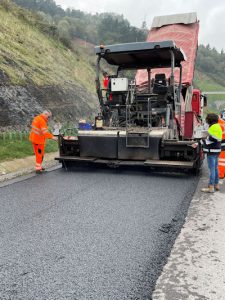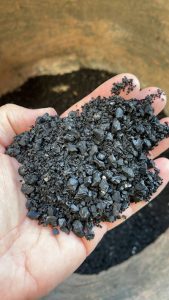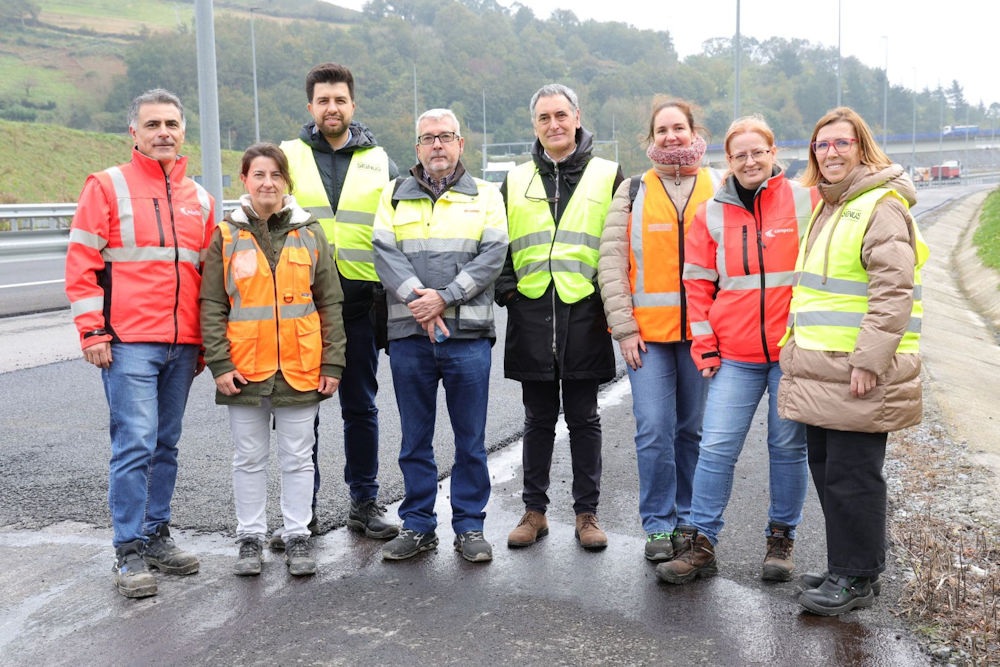The test section of the SIGNUS PERSEUS project, in which the sound-reducing and mechanical properties of asphalt mixtures developed with tyre rubber granulate will be evaluated, has been successfully executed
This project, in which CAMPEZO, ASFALTIA, MOEVE, TECNALIA and SIGNUS participated, aimed to develop Poroelastic, sound-reducing, sustainable and resiliant asphalt pavements .

The PERSEUS project, started in May 2022, aimed to develop new asphalt mixtures for pavements that reduce rolling noise and incorporate materials from tyre recycling.
This project is funded by the CDTI and is led by CAMPEZO with the participation of ASFALTIA, MOEVE and SIGNUS. It also has the collaboration and support of TECNALIA.
The project arises from the importance of adopting measures to reduce the noise levels of road traffic in inhabited environments.
One of the innovations of this project is the use of recycled rubber granules from end-of-life tyres to replace aggregates of sizes between 1 and 8 mm. The aim is to develop a solution that is as sustainable as possible to allow for an effective reduction of noise produced by road traffic, guaranteeing the durability of the pavement.

Following the tasks of designing, manufacturing and characterising different asphalt mixtures at laboratory level, last November the section of work was carried out in an area within the AP8 “Variante Sur Metropolitana”, made available by the Provincial Council of Bizkaia (DFB) through the Bizkaia Connected Corridor (BCC) initiative, promoted to test, validate and demonstrate all types of technologies linked to Mobility and Infrastructure in a real scenario.
The implementation of the two mixtures developed with rubber has been a success. In the coming months, the mechanical properties of the installed pavement will be studied and noise tests will be carried out with adapted vehicles.
The results of the analysis of the test section will show whether the use of rubber particle sizes much larger than those normally used for bituminous mixtures is an efficient solution for the manufacture of sustainable and sound-reducing pavements for our roads, which can reduce the noise generated by traffic, with the consequent positive impact on the population.

















